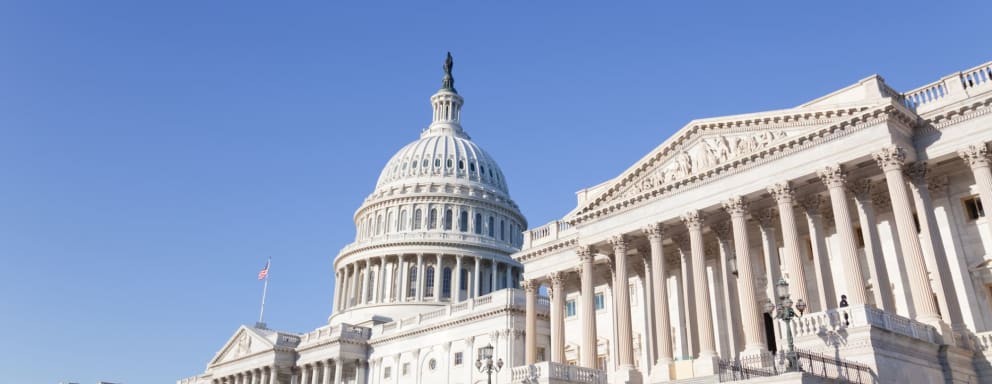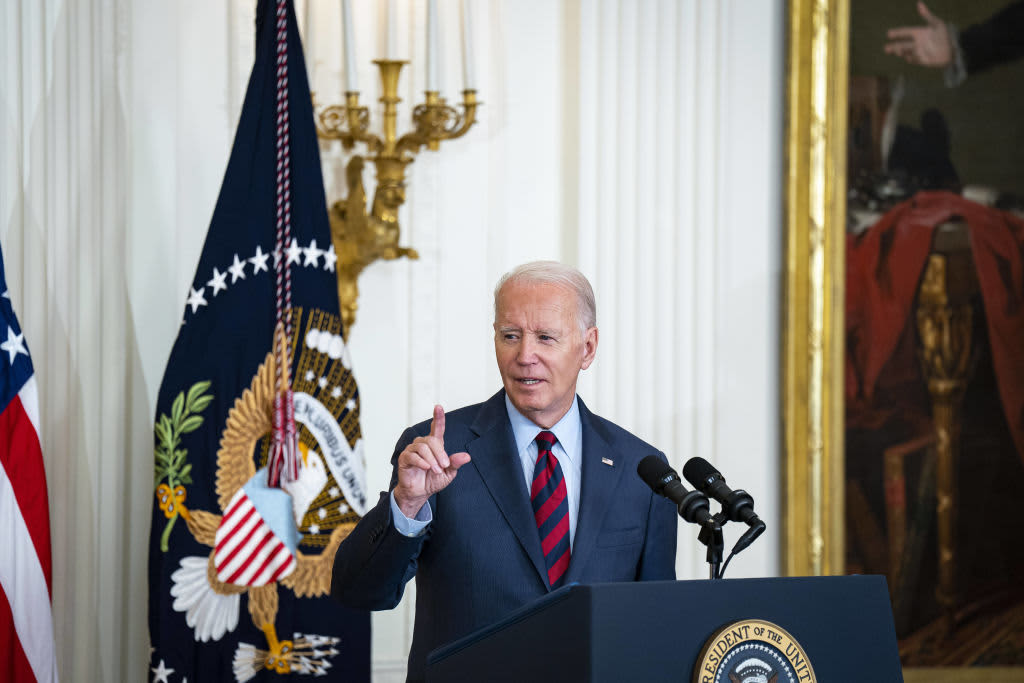How Would a Government Shutdown Affect Nursing and Healthcare?

 Credit: Getty Images
Credit: Getty Images- A federal government shutdown in 2023 could affect nurses and the healthcare system.
- Community health centers and public safety would face immediate challenges.
- Federal healthcare employees would go without pay during a shutdown.
- The impact of a shutdown could shape healthcare for years.
On Sept. 30, Congress came within hours of a government shutdown. At the last minute, Congress passed a 45-day resolution to keep the government open. And yet, with much of Congress still in chaos, the risk of a federal government shutdown remains real.
If the government does shut down this time, it will spell trouble for care facilities, nurses, and patients.
Thirty-four percent of national health spending comes from federal dollars. Many people in underserved areas rely on federally funded community health centers for primary care. In addition, many nurses and healthcare professionals work for the federal government. What will healthcare and nursing look like if the government shuts down? The impacts could be felt for years.
The Government Shutdown: How Did We Get Here?
Every year, the federal government passes a budget that allocates money for various federal agencies and programs, including funding for the military, student aid, roads and other infrastructure projects, and more. The healthcare sector also depends on federal funding.
While the White House initially proposes a budget, the Senate and House of Representatives each pass their own versions. Then, the two branches of Congress must hammer out or reconcile their budgets into a single version, which then goes to the President for a signature.
Mandatory spending like Social Security and Medicare are excluded from the appropriations process. Instead, the budget focuses on discretionary spending –– and the two parties differ widely on priorities in these areas.
With the Senate led by Democrats and the House under Republican control, many predicted a government shutdown months ago. And when last year’s budget ran out on Sept. 30, many believed the government would shut down. Instead, Congress passed a 45-day continuing resolution, which kept the government open.
But that continuing resolution runs out on Nov. 17. And since passing the continuing resolution, the House ousted Speaker Kevin McCarthy, leaving doubts about whether Congress can pass a budget anytime soon.
What the Government Shutdown Could Mean for Healthcare and Nurses
Shutting down the government could have wide-ranging consequences. Federal employees face furlough or working without pay until the government reopens. A government shutdown would also have a major impact on healthcare and nurses. Many critical programs rely on federal funding, and the federal government employs many nurses at federal hospitals and VA facilities.
Here are some federally funded healthcare programs that would be disrupted by the shutdown, along with the implications for nurses and public health.
Community Health Centers
Many community health centers rely on federal funding –– and a government shutdown could put nurses out of work and leave vulnerable patients without medical care.
Federally qualified health centers, or FQHCs, serve low-income and rural communities. About 1,400 clinics operate across the country. At FQHCs, anyone can receive care, regardless of their ability to pay.
These community health centers primarily receive funding through Medicaid and federal grants. While grant funding may be restored after a shutdown, an extended shutdown could leave many nurses out of work and without a paycheck.
Essential Workers
Federal employees will see some of the largest impacts of a government shutdown. In Sept. 2023, the White House estimated that 3.5 million federal workers would go without pay if the government shut down.
That number includes many nurses. More than 133,000 nurses, including practical nurses and nursing assistants, work for the federal government. Many nurses are classified as “emergency personnel” or essential workers. That means that nurses in federal hospitals, including nurses working overseas, will continue to work while not receiving a paycheck.
While a 2019 law guarantees that federal employees will receive back pay after any shutdown, many may never see the money they would have earned. Independent contractors and subcontracted healthcare professionals working for the federal government have no guarantee they’ll receive back pay.
Medicare & Medicaid
Medicare represents 21% of the total national health spending, while Medicaid makes up another 17%. How will a government shutdown affect healthcare and nursing when nearly 2 in 5 dollars spent on healthcare comes from these federal programs?
Fortunately, a government shutdown would have a limited impact on Medicare and Medicaid. That’s because both programs are mandatory, and most of their funding is not linked to the appropriations process.
Still, the U.S. Centers for Medicare and Medicaid Services (CMS) plans to furlough around half its staff and put non-essential services on hold. And if the shutdown lasts longer than three months, the CMS may run out of funding.
Department of Health and Human Services
The U.S. Department of Health and Human Services (HHS) operates community health programs encouraging prevention and wellness. HHS also plays a role in public health, biomedical research, and public safety. For example, the U.S. Food and Drug Administration is part of HHS.
In the event of a shutdown, approximately 42% of staff at HHS would be furloughed, according to a plan released by the department in Sept. 2023. That could impact the healthcare system more broadly.
National Institutes of Health
The National Institutes of Health (NIH) funds medical research and conducts clinical trials. Nurses work for the NIH and rely on its research to make evidence-based decisions.
Government shutdowns have a major impact on the NIH. For example, the 2013 shutdown caused delays in clinical trials and processing research applications, which can have ripple effects for years.
In September, the NIH stated that as many as 75% of employees might face a furlough during a shutdown. Only essential personnel would continue working on crucial systems. And those essential personnel would work without pay until the shutdown ended.
The Looming Budget Deadline
Nurses are often at the front lines during public health emergencies. A government shutdown would have immediate impacts on pay for federally employed nurses. Even a short-term shutdown could negatively affect public health and safety and shut down community health centers. An extended shutdown might impact medical research and potentially Medicare and Medicaid.
While chances for a budget agreement look dim, the situation can change quickly. Few predicted that Congress could agree on a continuing resolution in September. In the worst-case scenario, the 45-day extension gives nurses and healthcare systems time to prepare for a possible shutdown.
You might be interested in

The White House’s $100 Million Commitment to the Nursing Workforce: What Nurses Need to Know
Inside President Joe Biden’s $100M investment in the nursing workforce and nursing education.

5 Places Where Public Health Nurses Work
Public health nurses work in a variety of settings, from clinics and schools to nonprofit organizations. Learn more about career options and work settings for this profession.

A New Bipartisan Proposal Would Increase Class Sizes at Nursing Schools: What You Need to Know
How a multibillion-dollar proposal would benefit nursing workforce development and education programs.